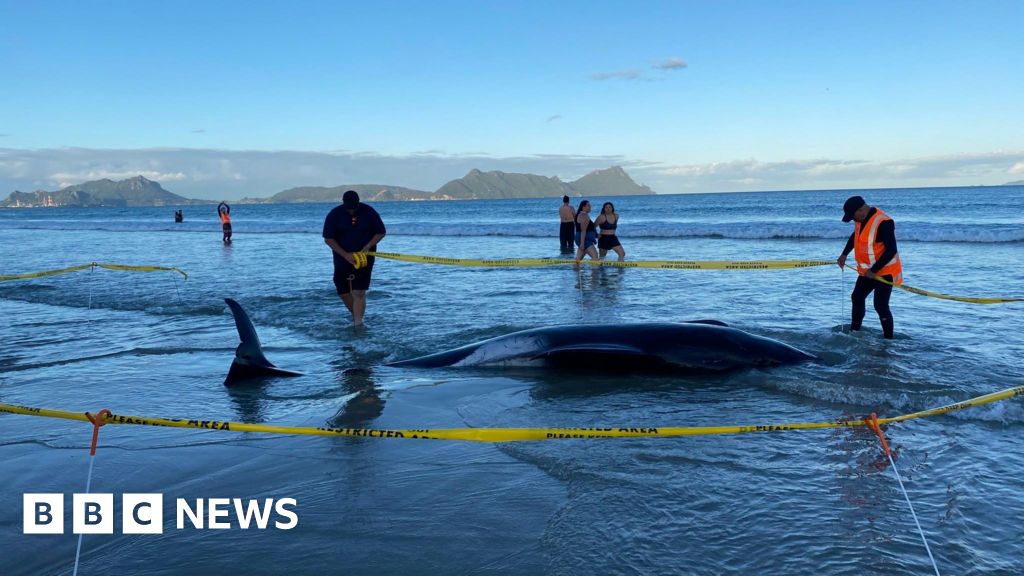ARTICLE AD BOX
Ten thousand people living near a military base in western Germany were told to stop using tap water on Thursday night, as authorities investigated a case of possible sabotage at a water supply site.
The warning came after the discovery of a fence cut at the water storage site in Mechernich area near Bonn. The all-clear was eventually given on Friday morning, although residents were urged to boil their water before drinking it.
A day earlier, an air force base near Cologne-Bonn airport was sealed off for several hours with "abnormal water values" detected in the supply.
Separately, Nato reported an attempt to trespass on its base at Geilenkirchen close to the Dutch border.
The extent of sabotage in any of the three incidents remains unclear although Germany's armed forces, the Bundeswehr, have been on heightened alert because of Russia's war in Ukraine.
Nato's Awacs reconnaissance planes are stationed at Geilenkirchen and the Cologne-Wahn base close to the main regional airport is home to the top echelons of the German air force as well as planes used by government ministers for foreign travel.
More than 5,000 soldiers and civilians are said to work at the Cologne-Wahn base, and although the outer fence was not tampered with, a hole was found in the fence close to the barracks' water supply.
No-one has yet been detained for any of the three alleged sabotage incidents.
Residents in Mechernich and surrounding towns and villages quickly stocked up on bottled water on Thursday night as the fire brigade drove around the area warning people not to use tap water for drinking, showers or preparing food, regional public broadcaster WDR reported.
Military officials are taking the latest incidents very seriously. Interior Minister Nancy Faeser said this week, even before the spate of scares, that Germany was facing an increased danger of Russian sabotage.
"The threats we have to protect ourselves against range from espionage, sabotage and cyber attacks to state terrorism," she told Handelsblatt newspaper on Monday, explaining that the Ukrainian advance into Russian territory could exacerbate the threat.
German-supplied Marder armoured vehicles are apparently being used by the Ukrainians in the Kursk region.
Germany is the second largest donor of military aid to Ukraine after the US, earmarking some €28bn (£24bn) since the start of Russia's full-scale invasion in February 2022, according to recent figures.
Only last month, the domestic intelligence service (Verfassungschutz) warned of an increased risk of sabotage activities and reports emerged of an alleged Russian plot to kill the head of Germany's biggest arms firm Rheinmetall.
Last April, two German-Russian dual nationals were arrested in the south-western state of Bavaria on suspicion of plotting sabotage attacks on military or industrial targets.

 3 months ago
19
3 months ago
19








 English (US)
English (US)